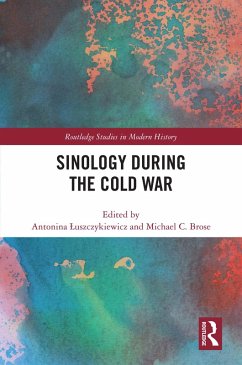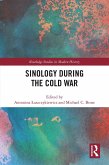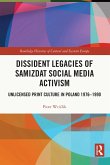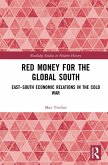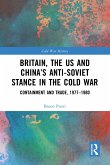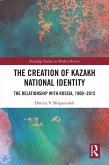Dieser Download kann aus rechtlichen Gründen nur mit Rechnungsadresse in A, B, BG, CY, CZ, D, DK, EW, E, FIN, F, GR, HR, H, IRL, I, LT, L, LR, M, NL, PL, P, R, S, SLO, SK ausgeliefert werden.
Patrick Mendis, distinguished visiting professor of global affairs, National Chengchi University, and former US commissioner to UNESCO
This is an important, long-time overdue volume. It presents the state of Chinese studies during the Cold War era in the Socialist Bloc. Situating research on China within the specific geopolitical complexities, this collection sheds light on the contributions and limitations as well as the achievements and blind spots of the Eastern Bloc academia. This is a required reading not only for specialists in Chinese studies, but also for scholars interested in academic history at large.
Axel Schneider, vice director, Centre for Modern East Asian Studies, University of Göttingen
This is a unique study in the field of New Sinology, which engages deeply in contemporary China. In fresh and insightful perspectives, this study is supported by well-grounded research and wealth of new information from the former Soviet satellite states by sinologists and China watchers: scholars, diplomats, and journalists. Fascinating, detailed, and nuanced. Highly recommended.
Bogdan J. Góralczyk, professor and former ambassador, University of Warsaw
This book analyzes the perceptions of China from the perspective of the "dark side" of the Iron Curtain. It covers the evolution of sinology and the image of China during the Cold War. It is a must-read to understand the impact of geopolitical conflicts on academic freedom.
Adam Jelonek, director and former ambassador, Institute of the Middle and Far East, Jagiellonian University

